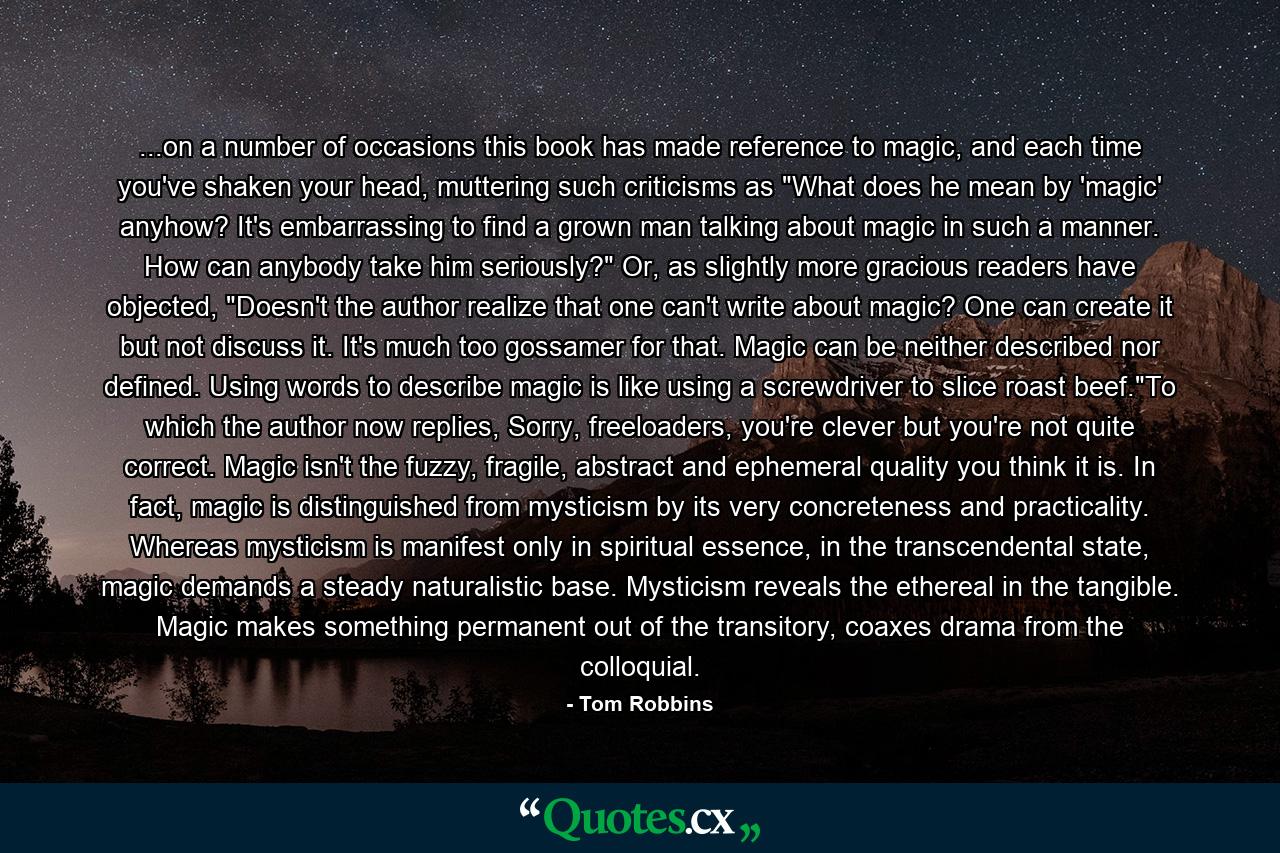…on a number of occasions this book has made reference to magic, and each time you’ve shaken your head, muttering such criticisms as “What does he mean by ‘magic’ anyhow? It’s embarrassing to find a grown man talking about magic in such a manner. How can anybody take him seriously?” Or, as slightly more gracious readers have objected, “Doesn’t the author realize that one can’t write about magic? One can create it but not discuss it. It’s much too gossamer for that. Magic can be neither described nor defined. Using words to describe magic is like using a screwdriver to slice roast beef.”To which the author now replies, Sorry, freeloaders, you’re clever but you’re not quite correct. Magic isn’t the fuzzy, fragile, abstract and ephemeral quality you think it is. In fact, magic is distinguished from mysticism by its very concreteness and practicality. Whereas mysticism is manifest only in spiritual essence, in the transcendental state, magic demands a steady naturalistic base. Mysticism reveals the ethereal in the tangible. Magic makes something permanent out of the transitory, coaxes drama from the colloquial.
